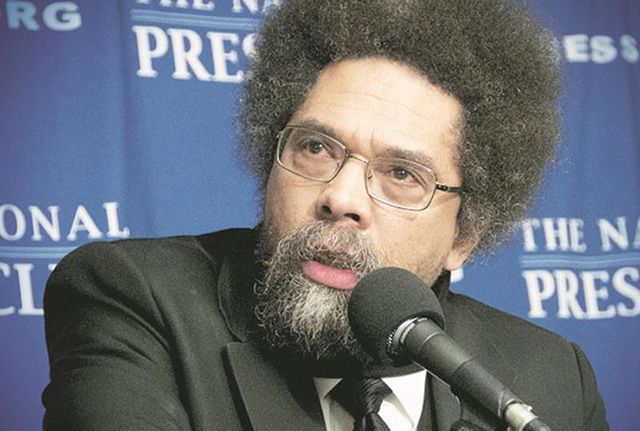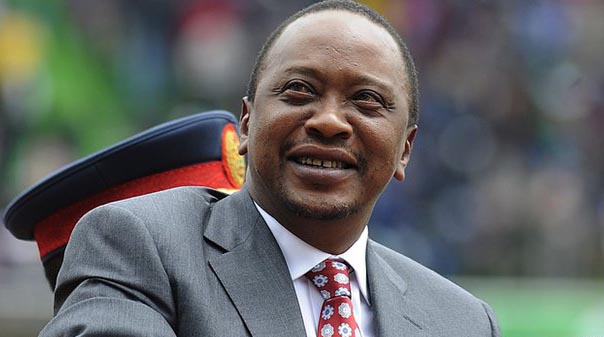Counter-extremes of the black identity

Literature Today Stanely Mushava
The post-prophetic US is characterised by increasing repression and stratagems of co-optation by the political and corporate establishment.
Book: Black Prophetic Fire
Author: Cornel West
Publisher: Beacon Press
ISBN: 978-0-870-0352-7
Dancehall sing-jay Bugle plays back a thumbnail sequence of pan-Africanist father-figures, tagging in the first black US President Barack Obama as the high point of the freedom train.
“The Journey” video by Bugle is an example of the excitement occasioned by Obama’s ascendancy, and the ripple factor in popular entertainment and other spheres of black culture.
For our part, we entered inter-school essay competitions revolving around the idea that a black president in the White House was the happily-ever-after of pan-Africanist strivings.
Obama’s rubber-stamping of drone warfare, bankrolling of terror to destabilise nations in the imperial warpath, failure to upgrade the living conditions of the poor, particularly blacks, in the US, and liaisons with Wall Street oligarchs soon told a different narrative.
The first narrative became dew before sell-by rays.
Obama has become the black face of a white empire in terms of foreign policy, and an automaton remote-controlled by corporate interests in terms of domestic policy.
“If high status in America and white points of reference are the measure of the black freedom movement then this point in black history is the ultimate success,” observes leading African-American public intellectual Cornel West in his 2014 book “Black Prophetic Fire”.
“But if the suffering of black people, especially the black poor and working people, is the measure of the black freedom movement, then this moment in black history is the most catastrophic, sadly continuous with the past,” contends West.
To short-circuit the fallacy of judging a house by its roof, applied in appropriating the Obama presidency as a of measure black empowerment, West imports hard indices from the real world.
Police brutality, massive unemployment, infant mortality, decrepit schools, indecent housing, mass incarceration, the black middle class’s loss of 60 percent of its wealth and devastation of the working class by stagnating wages and increasing prices in Obama’s America fault the fresh prince narrative.
Few people have been as forthright as Cornel West in their criticism of Obama. The public intellectual is disappointed in Obama for leaving blacks at the back of the bus to steer sponsored causes such as sodomy and abortion.
His sustained criticism of Obama has earned him notoriety not only with mainstream media but also fellow blacks who consider criticism of a black leader unbrotherly.
West increasingly comes across as an ostracised and, for those who subscribe to the mainstream narrative, discredited voice as he maintains his protest against power on behalf of poor blacks in the US.
In “Black Prophetic Fire: In Dialogue with and Edited by Christia Buschendorf,” West maintains his criticism of black decoys in a capitalist-imperialist plot.
He rejects the colour-coded muting of criticism. His appeal is relevant and urgent to the need to rewire pan-Africanist discourse, especially here in post-colonial Africa.
“Is it not hypocritical to raise one’s voice when the pharaoh is white but have no critical word to say when the pharaoh is black? If the boot is on our neck, does it make any difference what colour the foot is in the boot?” protests Brother West.
“Black Prophetic Fire” celebrates and invokes the prophetic tradition of the yesteryear, that is, activism against the crimes of political power and corporate greed against the vulnerable.
The lives and works of six exemplars, Fredrick Douglass, WEB Du Bois, Martin Luther, Ella Baker, Malcolm X and Ida B Wells, are tagged in both to epitomise and to stoke the fire of the black prophetic tradition.
West makes an impassioned case for the revival of the prophetic tradition in an atmosphere of complacency, regress and individualism, a vice historically eschewed by the black fraternity.
The controversial public intellectual, in dialogue his brilliant interlocutor and editor, German historian Christia Buschendorf, retraces the courageous actions and visionary legacy of the black prophets.
The book, presented in six dialogues, is a stimulating read for its emphasis on moral plug-ins for the 21st century capitalist machine, conversational structure, forcefully argued and painstakingly referenced premises.
West comes across as a restless chat head, richly versed in the black prophetic tradition but also prone to digression and hints of hubris, a condition likely stoked due to ostracism by elitist gatekeepers.
Buschendorf, brilliant and equally versed in the prophetic tradition, provides an interesting counter-pitch and the structural spine of the dialogues.
The fire starts with Douglass, described as the “most eloquent ex-slave” who had a significant stake in the Abolitionist movement culminating in the Emancipation Proclamation.
Du Bois, one of the most important black intellectuals of the 20th century, takes up the torch and trains sustained criticism on the American empire.
For West, the pro-poor sociologist’s ignored but incisive criticism of American class atrocities anticipates the decline and fall of the empire.
Martin Luther King and Malcolm X die for their beliefs and becoming enduring symbols of sacrifice, investigative journalist and former slave, Wells is radical and unyielding while Baker is a grassroots logistics genius who does not want cameras flashing in her face.
The featured icons have their complications and flaws, especially as children of their time, but, even in their limitations, they are on fire for justice, commited to the least of their disenfranchised fraternity and their voices speak well beyond their time.
The panel of two laments the muzzling of the prophetic voice in the US, since the assassination of civil rights champion Martin Luther King Jnr. The post-prophetic US is characterised by increasing repression and stratagems of co-optation by the political and corporate establishment.
“The fundamental shift from a we-consciousness to an I-consciousness reflected not only a growing sense of black collective defeat but also a black embrace of the seductive myth of individualism in American culture,” laments West.
“Black people once put a premium on serving the community, lifting others, and finding joy in empowering others,” West notes. He bemoans the destruction of that culture owing to black people’s individualistic quests for wealth and status.
West argues that the concept of the self-made man or woman is mythical and traditionally foreign to black communities but has been incorporated with the help of black leadership.
Douglass inadvertently yields, erasing the contributions of others to his development.
In the present day, emphasis is on instant celebrity, whatever the values at stake, instead of the spirit of community.
Popular culture has departed from its foundation in the suffering of the people to microwave prosperity and self-absorption, not to speak of hypersexualisation, violence and intoxication, facilitating spiritual emptiness.
This is largely the case for black communities as varied as African America, Jamaica and Zimbabwe.
The church, originally the ideological engine of the oppressed, has also ceded its place as the voice of conscience in the public square and reverted to messages of instant life-enhancement bordering on selfish ambition.
Du Bois’s prophecy that blacks were bound to find victory in Africa is impended by vandal leaders of independent Africa who have not given their people respite, rather a legacy of self-aggrandisement, corruption and violence.
West also takes issue with black leaders’ privileging of market forces at the expense of the disempowered majority, particularly in South Africa.
“When the black prophetic tradition is weak, poor and working people are overlooked. On the international level, when the black prophetic tradition is vital and vibrant, anti-imperial critiques are intense, and the plight of the wretched of the earth is elevated,” the panel of two signs out.
Stanely Mushava blogs at upstreamafrica.blogspot.com








Comments